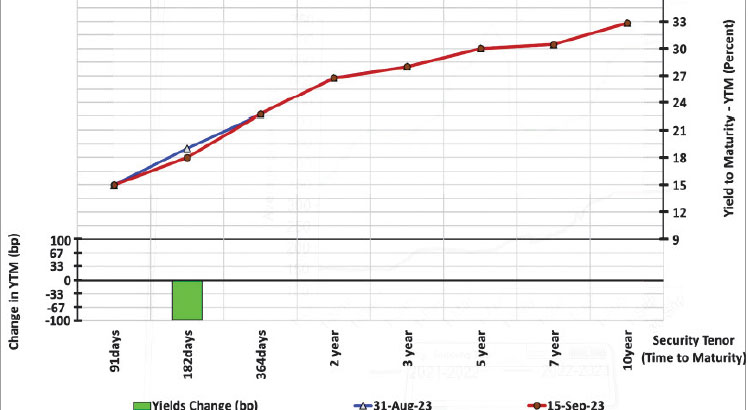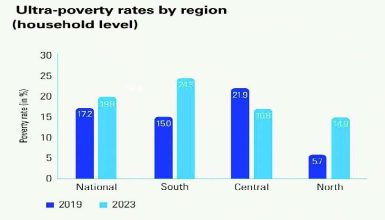T-bills market gains ground
The Treasury Bills (T-bills) market continues to gain ground with rates on all three tenors rising on Ministry of Finance and Economic Affairs’ growing appetite for domestic borrowing and tightening policy stance, Business Review has established.
Money market analysts say entails interest rates will continue to rise and be transferred to borrowers, as T-bills are a key rate in calculating commercial banks’ reference rate which determines the rates at which banks lend.
Reserve Bank of Malawi (RBM) data, shows that in the past 12 months to August 2023, the average yield on all the three tenors has increased by an average of 4.43 percent.
The data contained in Nico Asset Managers Limited latest economic report shows that the T-bills yield on the 91-days average yield increased to 14.7 percent from 10.67 percent while the 182-days yield and 364 days yield rose to 18.16 percent from 15.24 percent and 24 percent from 18.06 percent, respectively.
Month on month, the data shows all the three tenors have increased by an average of 1.2 percent, between August and July this year.

In an interview on Tuesday market analyst Cosmas Chigwe, while indicating that it is normal for T-bills rates to be rising when inflation is rising, said the trend would keep commercial banks’ lending rates elevated.
He said: “Naturally, investors in this type of market prefer to invest on the shorter end of the available securities to take advantage of higher rates on maturity. Therefore, government has no choice, but to take this as that is where the money is available.
“As it stands, government is not financing its deficits through shorter-dated securities as a matter of policy, but that is where investors are willing to invest, and usually the government has no choice but to accept.”
In a separate interview, market analyst Bond Mtembezeka said apart from the fact that interest rates are tracking the policy rate at 24 percent, government’s huge borrowing is having an impact on T-bills rates.
“That coupled with the fact that the government is relying heavily on borrowing from the market to make up for deficits, definitely this tends to raise government securities’ yields,” he said, adding that should the trend continue, the reference rate is likely to go up.
Financial market analyst Misheck Esau in an earlier interview also observed that there is increased borrowing by government to close the budget deficit, adding that in the end, rates have to go up as government has to make borrowing expensive to tame inflation but also raise T-bills rates to entice investors to invest so that it meets its huge borrowing appetite.”
Currently, Malawi’s public debt stands at K9.41 trillion as at March 2023, up from K6.84 trillion as at end March 2023 with K5.36 trillion in domestic debt.






One Comment